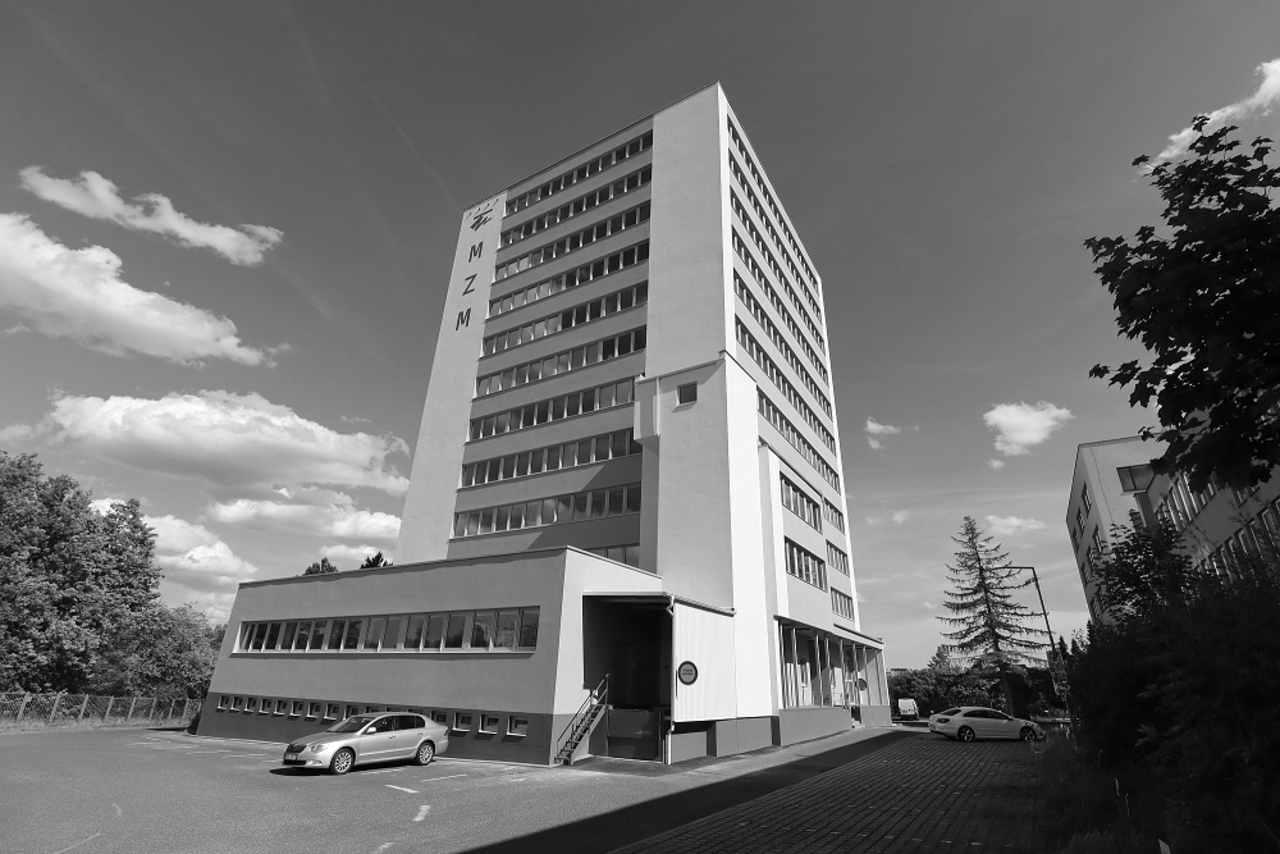Department Head
Ing. arch. Tomáš Prokůpek - curator focusing on Central and Eastern European comics and Czech (Czechoslovak) illustration from the 19th to the 21st century, the work of Artur Scheiner and Ondřej Sekora
tel.: +420 515 910 424
mob.: +420 725 076 207
e-mail: tprokupek@mzm.cz
Staff
- Mgr. Hana Kraflová - deputy head, curator, 19th and 20th century literature; research activities: literature and journalism from the fin de siècle to the mid-20th century, the work of Rudolf Těsnohlídek
tel.: +420 515 910 421, e-mail: hkraflova@mzm.cz - PhDr. Eleonora Jeřábková, Ph.D. - curator, 19th and 20th century literature; research activity: Czech-German literary contacts, the work of Marie Ebner von Eschenbach
tel.: +420 515 910 422, e-mail: ejerabkova@mzm.cz - PhDr. František Schildberger, Ph.D. - curator, 19th and 20th century literature; research activities: versology, genealogy
tel.: +420 515 910 425, e-mail: fschildberger@mzm.cz - Hana Fleková - librarian
tel.: +420 515 910 423, e-mail: hflekova@mzm.cz
Characteristics
The Literary History Department of the Moravian Museum is one of the youngest. It was founded as the first literary history department in Moravia in 1958 within the Brno City Museum. Jiří Hájek (1932-1998), a young graduate in Czech studies, was appointed to manage the new department, and it was a lucky choice: his personality combined expertise with breadth of scope, diligence, creativity and humility. He gave the new department a concept and led it until his death in 1998. In 1961, thanks to the expansion of its collection, research and popularization activities, the department was transferred to the then Moravian Museum: the existing focus on Brno was expanded to include documentation of the development of Czech literature from the earliest times to the present, with special attention to the territory of historical Moravia.
From the beginning, the department was linked to the activities of the Brno branch of the Institute of Czech Literature of the Czechoslovak Academy of Sciences: the tasks of the Literary Department used to be part of national research plans. An external scientific council worked as an advisory body. The staff of the department prepared exhibitions for Brno and for smaller Moravian settlements, including permanent exhibitions. The end of the inspiring 1960s also brought cooperation with the Music Department of the MM and programmes of the Small Theatre of Music and Poetry. After the advent of the so-called normalisation in the early 1970s, Dr. Hájek was (as a result of his political attitudes) dismissed from his position as head and the department became part of the newly formed Institute for the History of Theatre and Literature (1973-1983). Literary exhibition activities were curtailed at the museum, and the department presented itself in Brno bookshops. It was only from the mid-1980s that the situation eased. Art is also politics, and verbal art in particular: the workplace was a meeting place for authors uncomfortable with the regime and their readers, and memoirists speak of the lending of samizdat and the preservation of - at the time unrecorded - inedited material. Even thanks to these facts, the 1989 coup (the so-called Velvet Revolution) did not represent a fundamental change in the style of its work, but only made the hitherto hidden obvious: the department included in its sub-collection, for example, samizdat or video recordings of literary lectures and discussions from 1987-1989 (about authors officially neglected). The following years saw staff reductions and organizational changes: the transfer of the Memorial of the Bible of Kralice (1998) and the entire Literary Department (2006) to the administration of the Historical Department of the MM; the records of the literary collections and the library remained independent.
The 2009 year brought major changes that are still in force today: the Department regained its independence and its final premises on Hudcova Street (The Jiří Gruša House). In 2015, the collection of large estates of exiled and samizdat authors, not restricted to Moravian context or origin, was separated as the present-day Anti-Totalitarian Cultural History Department. Abundant exhibition activities have been renewed, cooperation with the Memorial of National Literature in Prague, the Institute for Czech Literature of the Czech Academy of Sciences and Masaryk University has been re-established. Among the researchers are students of universities and secondary schools, our material is often part of exhibitions of other institutions at home and abroad, traditional cooperation with the media continues and contact with the public is increasing (lectures, competitions, series of talks and literary programmes). In 2013, the first permanent exhibition space was opened: the exhibition Corpus Litterarum. Traces of Literature Not Only in Moravian History; our exhibitions also focus on the link between literature and visual arts. Professional publishing activity has increased. Today's employees deal with literature and journalism from the second half of the 19th century to the 20th century, also with the contacts of Czech culture with German culture and the field of comics. The bookbinding workshop, founded in the late 1960s, remains part of the department.
The Literary History Department now manages over 100,000 collection items (manuscripts, correspondence, personal documents, photographs, negatives, audiovisual records, paintings, busts, coins, postage stamps, personal items of authors), a reference library of over 25,000 volumes (specialist monographs, periodicals, fiction) and an extensive scrapbook archive. It has built up its prestige and maintained continuity. The legacy of the competence and enthusiasm of its founders is a heritage that obliges.
